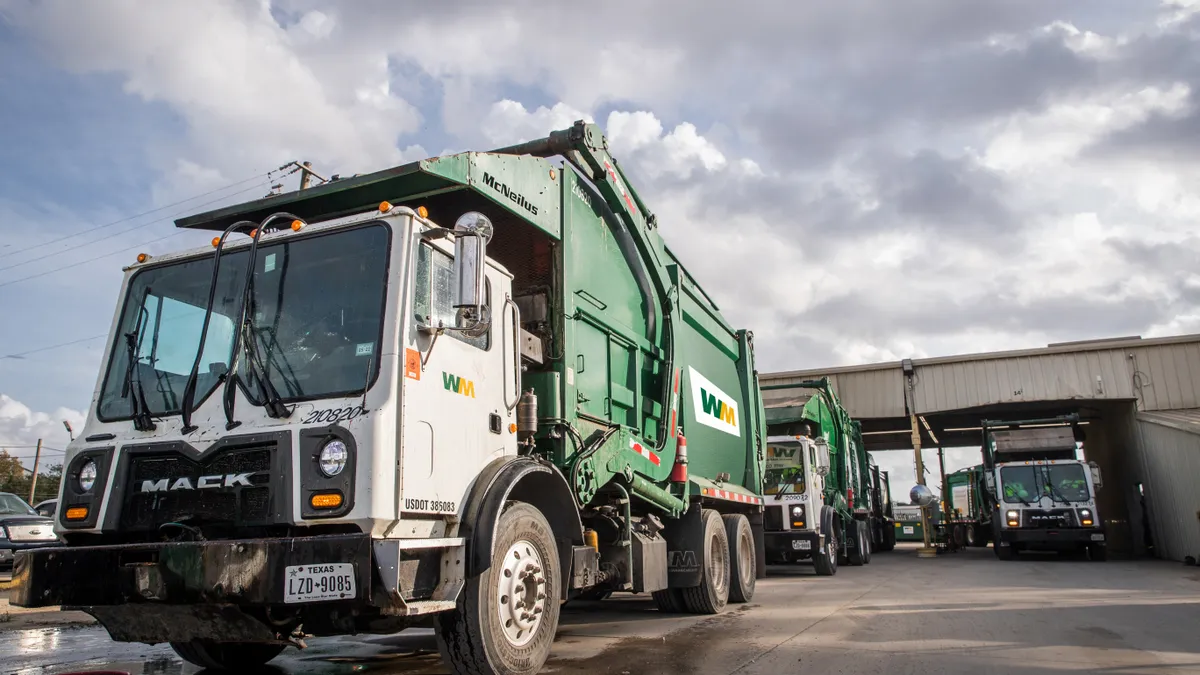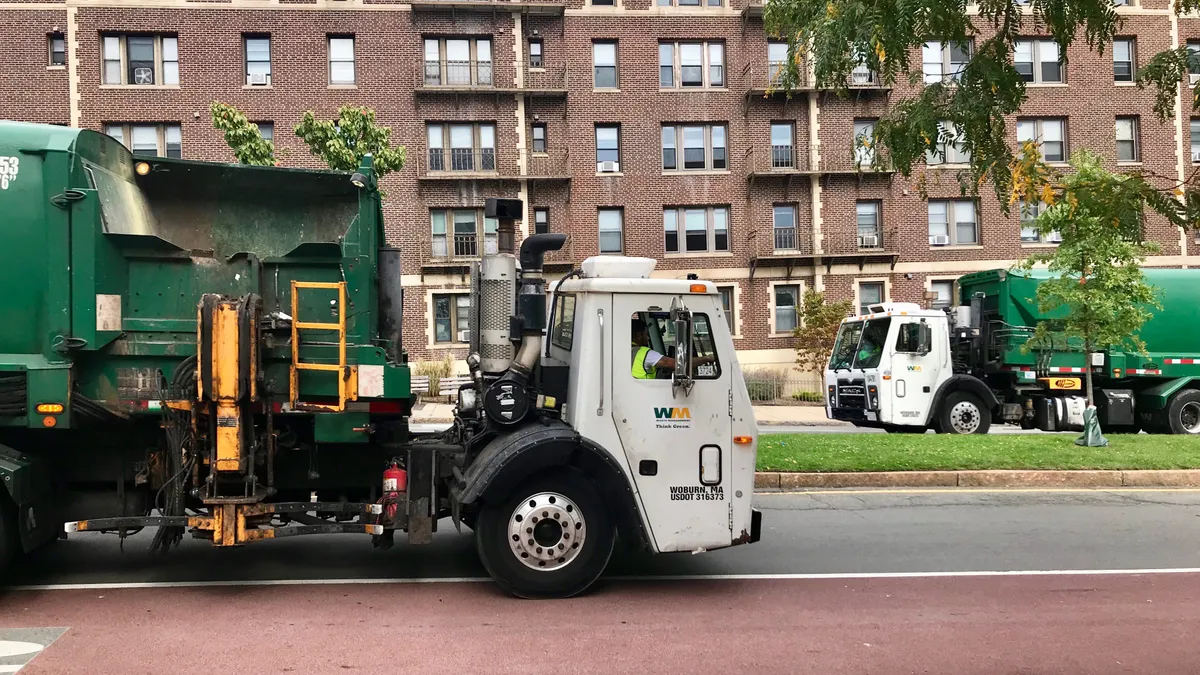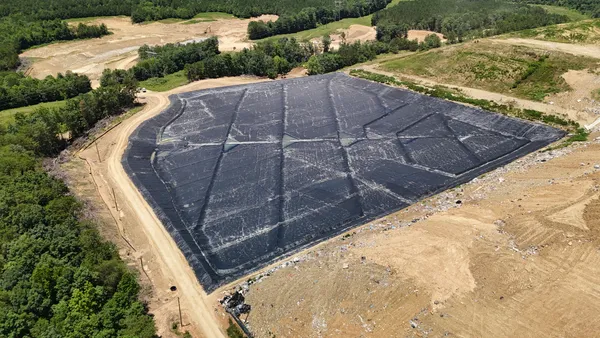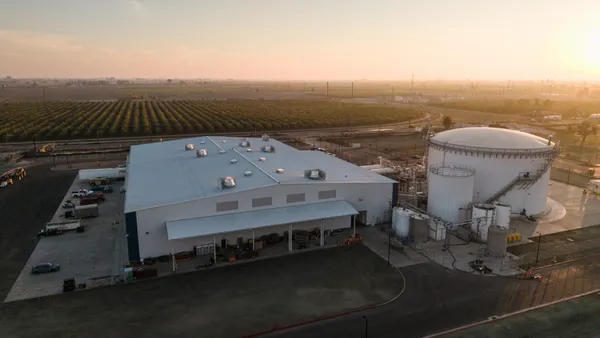- Economic outlook: During a Q4 earnings call on Tuesday, WM CEO Jim Fish applauded “a remarkably strong finish to 2023” marked by stable business in the company’s collection and disposal sectors, along with new technology and automation that helped improve operating costs. Full-year earnings before interest, taxes, depreciation and amortization exceeded the company’s recent guidance range by about $25 million, Fish said.
- Volume: Q4 collection and disposal volume grew by 1.9% on a workday adjusted basis, mainly driven by MSW landfill and commercial collection. Meanwhile, residential collection volumes declined due to “intentional shedding of low-margin contracts.” In 2024, collection and disposal volume is expected to grow about 1%.
- Pricing: Growth from price and volume in the collection and disposal business was 6.3% for the year, “which outpaced our expectations,” said COO John Morris. In 2024, WM expects core price of between 6% and 6.5% and collection and disposal yield around 5%.
- Canadian recycling projects: WM announced it was awarded two new “recycling projects” in Ontario, Canada, which Chief Sustainability Officer Tara Hemmer said are an opportunity for the company to “showcase our automation investments” as the province gradually rolls out extended producer responsibility provisions. Hemmer sees more opportunities for WM to “win more business” and build partnerships with producer responsibility organizations in both Canada and in U.S. states as localities roll out new EPR laws.
- Recycled commodities: WM reported its blended average single stream recycled commodity price was about $75 per ton in Q4, compared with about $47 per ton in the prior year. For the full year, it reported a blended average price of about $62 per ton, compared to about $100 per ton in 2022. WM’s outlook for 2024 estimates about a $70 per ton average.
- Acquisitions: WM plans to invest between $100 million and $200 million in solid waste acquisitions in 2024. That compares to the $173 million spent on solid waste and recycling acquisitions in 2023, CFO Devina Rankin said. Fish described the tuck-in acquisition pipeline as “robust,” saying there are “some indications that 2024 could have heightened activity in this regard.” Executives said there’s a “growing list of willing sellers” due to labor challenges or a lack of succession planning.
- Labor: WM improved operating costs through several measures, including by continuing to reduce turnover rates, Morris said. In Q4, WM’s driver turnover was 18.4%, a “noteworthy milestone” as that rate has come down over the course of the year, he said. WM also continues to work on improving routing and automating MRFs as part of its long-term strategy to eliminate between 5,000 and 7,000 positions in the next few years through both “attrition and technology.”
- 2024 capital expenditures: In 2024, WM expects to spend between $2.2 billion to $2.3 billion on capital expenditures. Between $850 million and $900 million of that could be spent on what Rankin described as “high-return sustainability growth projects” related to recycling and renewable energy. Hemmer said the company aims to have about 40 projects under construction this year, “so that really gives you a sense of how we're building, and we have a lot of momentum in the ramp.” Through 2026, WM is budgeting up to $2.9 billion on such projects, which includes about $1.325 billion already invested in 2022 and 2023.
- 2024 renewable energy investments: WM expects to commission five new renewable natural gas facilities by the end of the year. Fish expects the projects to contribute incremental operating EBITDA of about $510 million by the end of 2026, assuming a blended average renewable natural gas price of $26 per MMBtu. In 2023, the blended average value was about $28.10 per MMBtu.
- 2024 recycling investments: WM also expects to complete automation upgrades at 10 recycling facilities this year, and “add three recycling facilities in new markets,” Fish said. WM expects such projects to contribute incremental adjusted operating EBITDA of about $290 million, assuming it can earn a blended average recycled commodity price of $125 per ton.
- 2024 outlook: WM anticipates total company revenue growth of between 6% and 7%, driven mainly by organic growth and the collection and disposal business approaching 6% growth. Its estimated operating EBITDA is expected to be in the range of $6.275 billion to $6.425 billion, an increase of about $450 million, Rankin said.

WM touts sustainability spending, ‘strong’ operations growth to wrap up Q4
Executives credited price and cost-saving measures for Q4 earnings growth and said the company will invest up to $2.9B in its recycling and renewable energy platforms through 2026.

Recommended Reading
- WM reports inflation headwinds are easing, shifts timing for certain sustainability projects By Megan Quinn • Oct. 25, 2023
- Q4 earnings results for major waste and recycling companies By Waste Dive Staff • Updated March 6, 2024














